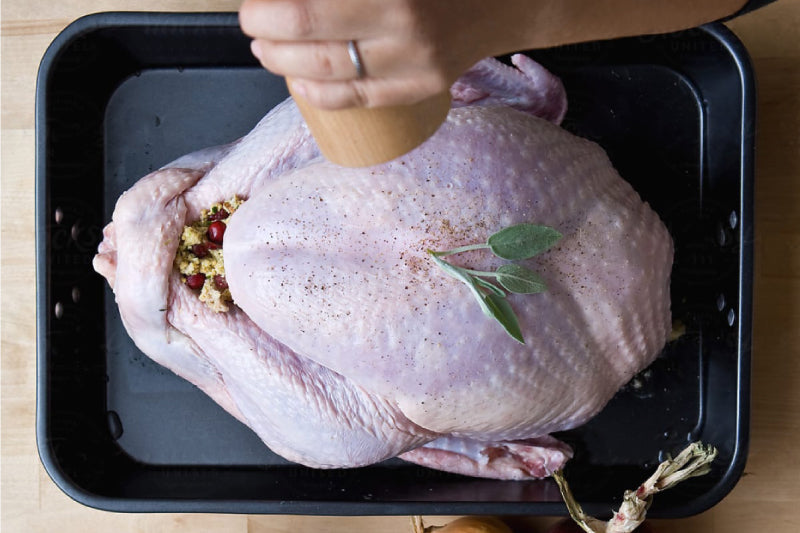


Attention!
Due to the COVID-19 outbreak we are no longer accepting or fulfilling NATIONAL orders for the time being.
If you are looking for New York City Grocery Delivery please click here.



Due to the COVID-19 outbreak we are no longer accepting or fulfilling NATIONAL orders for the time being.
If you are looking for New York City Grocery Delivery please click here.

Behind the Label: What's the difference between "Fresh," "Frozen," and "Previously Frozen" turkeys?
Turkey doesn't freeze until it gets to 26 degrees Fahrenheit. But the quality declines and food safety risks increase the warmer a turkey is stored. This is why turkeys labeled "Fresh" are almost always "hard-chilled." It’s a fancy industry term meaning they’re held between 26 and 32 degrees so they never freeze, but still stay fresh and safe to eat. Plus, if you buy a hard-chilled bird, you can freeze it without risk because it's never been frozen before! It’s the best way to ensure that you get a quality bird that has time to fully thaw before cooking. All our birds will be hard-chilled this year.
Pre-order your Thanksgiving turkey here.
These turkeys are in it for the long haul! For birds that need to be stored for longer than a week, freezing is the best way to keep the quality high. Frozen turkeys need more time to reach a cooking temperature, so we don't think it's convenient for our customers who will get them on the day before Thanksgiving! That said, if you get your bird early and want to store it frozen, just give it some time to defrost in the fridge before the big day. The USDA recommends 24 hours per 5 pounds of turkey. For food safety reasons, never thaw it on the countertop!
Birds that were frozen at some point and have now been "slacked" or thawed to refrigerator temperatures may have some quality issues due to the freezing and slacking, and cannot be safely re-frozen.
BTW
We’re not against frozen meat at Farm to People. In fact, all the meat and seafood we sell year-round is flash-frozen by our ranchers and fishermen and delivered to us this way. Freezing meat is an amazing way to capture the wild-caught flavor and texture and maintain the nutrients and minerals an animal gets from its diet (ie. the wild plants and grass they’ve grazed on). It helps us avoid waste when we can’t use fresh meat fast enough, and it means we can work with small-scale farmers and fishermen who may not be able to pack their meat on the same scale as larger vendors.